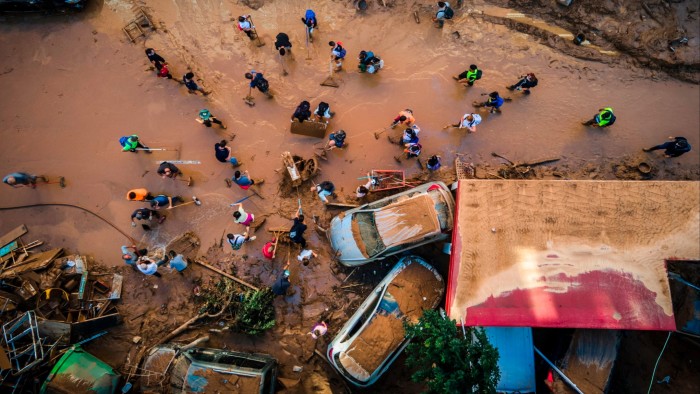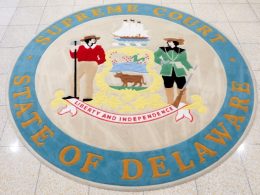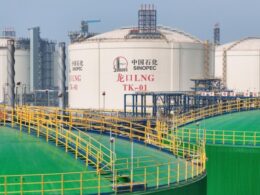Imagine a year’s worth of rain falling in just three hours and 20 minutes. Every spring shower, every winter burst — delivered in a single downpour. That’s what happened in the hills outside Valencia, south-east Spain, six months ago. At least 227 people died, making October 29 the deadliest day of flooding in Europe for decades.
When I visited the town of Paiporta recently, the mud and the wrecked cars had been cleared away, but the high-water marks remained visible on many buildings. The ground is still so wet that it won’t be worth homeowners repainting until after the summer.
But perhaps the floods’ more enduring legacy is the push to prosecute those in charge. Spain was one of the few countries to jail former bank executives after the financial crisis. Now it could — possibly — jail former public officials for their emergency management.
When is a natural disaster human-made? And when is human failure so stark that it breaks the law? A judge in Valencia, Nuria Ruiz Tobarra, is investigating these questions, with a speed that shames a British public inquiry. “The damage couldn’t have been avoided, but the deaths could have,” is her initial conclusion. Although the torrents in Paiporta were biblical, the water rarely reached the first floor of buildings. Had people known to leave their cars and ground floor homes, there was plenty of safe space.
Videos showing the extent of the floods.
Similar questions are being asked in Los Angeles, after the unprecedented fires in January. Yes, climate change supercharged a drought, but why weren’t city firefighters pre-deployed as they had been in 2011? Some residents, including two reality TV stars, are suing the city for alleged problems with firefighters’ water supply.
The impact of any disaster — perhaps except for an extinction-event asteroid — is shaped by human actions. Over the 20th century, the number of people killed by disasters fell steeply, from around 500,000 a year in the 1920s and 1930s to around 60,000 in the 1980s and 1990s, according to the site Our World in Data.
That’s because we learnt to protect ourselves. We developed warning systems, flood barriers and so on. Yet such advances only make the toll of disasters today more outrageous for victims and relatives.
Humans exacerbate disasters by failing to prepare and to warn, but legally it’s hard to pin the blame. After deadly floods in 2021, German prosecutors didn’t pursue charges against a key official who went Awol, judging that the failures were systemic. In Italy, after the 2009 earthquake in L’Aquila, seven scientists and officials were initially convicted of manslaughter for failing to warn of the dangers. But only one official had his conviction upheld, because he wrongly claimed earlier tremors had not increased the risk of a major earthquake. “So we should have a good glass of wine?” asked a journalist before the deadly quake. “Absolutely,” the official replied. He was given a two-year suspended sentence.
The Valencia floods, however, seem a very clear example of incompetence. Forecasts had warned of heavy rain the previous weekend. The University of Valencia had suspended all classes. But the regional government only sent out a warning to residents’ phones at 8.11pm on October 29. By then, the stream that runs through Paiporta had burst its banks and many of the 227 victims had died.
Judge Ruiz is investigating Salomé Pradas, the regional official in charge of sending emergency alerts, and the regional emergency secretary Emilio Argüeso (both fired shortly after the floods) on suspicion of manslaughter. In her evidence this month, Pradas admitted she had no experience handling emergencies; she didn’t even know about the system for sending messages to mobile phones until the afternoon of the floods.
One precedent comes from California, where the utility company Pacific Gas and Electric agreed to pay $13.5bn to victims for its equipment’s role in past wildfires. In 1996, floods hit a campsite in the Spanish Pyrenees, killing 87 people. The regional government and the environment ministry were ordered to pay €11.3mn compensation for having allowed a campsite in a flood zone.
There’s an argument that natural disasters should play to democracies’ strength: public accountability. The Nobel-winning economist Amartya Sen famously argued that famines were human-made: episodes such as the Bengal famine of 1943 were caused less by a decline in food supply and more by people’s inability to access food, often due to government policy. “No famine has ever taken place in the history of the world in a functioning democracy,” he wrote. Indeed, India has had no large famine since independence.
Authoritarian regimes seemed particularly likely to exacerbate natural disasters: Mexico responded poorly to an earthquake in 1985, rejecting early offers of international aid; its failures accelerated the end of the one-party state.
The problem today is that climate-fuelled disasters are exposing democracies’ shortcoming: the failure of long-term planning. In Valencia, the regional leader Carlos Mazón abolished a nascent emergency unit a year before the floods, as part of an attack on bureaucracy. Like various other governments around the world, his has promoted building on flood zones, and shunned climate action. (Heavy rainfall events like the one that caused the Valencia floods are more intense and about twice as likely in today’s human-heated climate than in pre-industrial times, according to scientists at World Weather Attribution.)
The blame game can be a distraction: climate-change denying politicians such as Trump can focus on local factors (like Los Angeles’s water supply) while ignoring the underlying causes of extreme weather. Valencia’s survivors rightly focus both on short-term political errors and long-running climate neglect. They are in no doubt that theirs was partly a human disaster: there have been six marches calling for the resignation of Mazón, who spent much of the key afternoon of October 29 having lunch with a journalist. (Others, on the right, have blamed Spain’s socialist prime minister Pedro Sánchez, although Judge Ruiz has stated that the emergency alerts were a regional responsibility. The king of Spain, who was pelted with mud in the days after the tragedy, is no longer a target.)
Today Paiporta is either half-recovered or half-abandoned, depending who you speak to. Many ground-floor shops and homes are still rubble or building sites. Some shop owners, particularly older ones, won’t return. Paiporta is just a few stops on the metro from Valencia’s main train station, but the line is still being repaired; there is currently a bus replacement.
I met a woman called Cristina Marí Andreu, whose toy shop was destroyed by the floods. She has been able to reopen the shop, thanks to a rapid grant from a supermarket chain, and to buy a new car, with public funds. But she remained angry. “They forgot about us for five days. We didn’t have water or electricity,” she said. She and five relatives shared one, waterless bathroom. The experience of receiving handouts had been profoundly uncomfortable. “What I want is to go back six months. I want what I had.”
Climate-fuelled disasters demand that officials act quicker and better than before. Valencia’s officials failed the test. But it’s questionable whether even competent authorities can satisfy residents’ demands — or whether, as with the Covid pandemic, they will almost inevitably make mis-steps.
In an age of disasters, as in a pandemic, there will be losers: people who must pay taxes to fund climate action, who are told not to live in flood zones, or who lose their property in extreme events. Covid knocked many people’s trust in institutions. A world of more semi-natural disasters may be a stormy one for our elected leaders.
Henry Mance is the FT’s chief features writer
Find out about our latest stories first — follow FT Weekend on Instagram and X, and sign up to receive the FT Weekend newsletter every Saturday morning









